Canada should be a global energy supplier of choice because we have the highest standards for protecting people and the planet.
We are 4th in the world on the clean technology index and we should be proud. #MoreCanada 
Alberta
Canada Action on the proposed Teck Frontier Mine

#visionCanada2119
In an effort to help Albertans and Canadians understand each other and have meaningful conversations about energy, the environment, and the economy, Todayville presents this informative post from Canada Action. We invite you to share your questions, comments and concerns. Please note the first time you comment on a Todayville story you will be asked to register as a user. Once registered you are also invited to contribute your own original posts to Todayville’s front page. Thank you for taking part in these important community conversations.

Diagrams and thumbnail photo from Teck.com
From Canada Action
Teck Frontier Mine: 8 Facts You Must Know
With the federal government’s decision on the Teck Frontier Mine coming soon (in February), there’s some important details about this new oil sands project that need to be brought into the limelight.
Teck’s new oil sands mine in northern Alberta will be one of the most innovative projects of its kind to-date, making use of industry-leading technologies to:
> Reduce greenhouse gas (GHG) emissions intensity
> Minimize water use and protect water quality
> Reclaim land as soon as mining begins
> Ensure safe, secure tailings storage with leading-edge technology
> Prevent or mitigate possible impacts to wildlife
Fact #1: Global Oil Demand is Growing
But before we discuss these further, it’s essential we are all reminded of the paramount fact that global oil demand is projected to grow by nearly 10 million barrels per day between now and 2040, as outlined in the International Energy Agency’s (IEA) most recent World Energy Outlook 2019.
Heck, that’s the whole reason why Teck has proposed this massive new oil sands mine in the first place. If oil sands growth forecasts by the Canadian Energy Regulator (CER)and U.S. Energy Information Administration (EIA) come even close to being true, with production increasing 50% by 2040 and even more so by 2050, the new Teck Frontier Mine is just a small part of the puzzle for Canada’s energy industry going forward.
We know about projected growth for oil and natural gas demand in the foreseeable future, so why would anyone not want Canada to have as much market share as possible? As one of the most transparent, regulated and environmentally responsible petroleum producers on the planet, it only makes sense that Canada should be one of the last producers “out of the pool.”
> Canadian Oil is in the World’s Best Interest: ESG Scorecard
> Canada Ranks 6th on Democracy Index 2018 (ESG Criteria)
> Canada Tops Environmental Performance Index Among Top 10 Oil Exporters
Canada’s record of oil and gas production is exemplified by Teck’s initiatives to make Frontier one of the best-in-class oil sands mines ever built in regards to both the environment and Indigenous support.
Fact #2: Land Reclamation Will Begin as Soon as Mining Starts
> Land reclamation will begin as mining progresses, adhering to strict regulations set forth by the Alberta Energy Regulator (AER)
> The actual footprint of active mining will be smaller than the total project area due to on-going reclamation efforts
> With a size of about 292 square kilometres, the mine’s total surface area is about half the size of Edmonton but this land will not be all disturbed at once
Fact #3: Frontier Will Have a Carbon Intensity Less than 50% of USA Refineries

> GHG emissions intensity of the Frontier project will be about 50% less than the oil sands industry average
> Carbon intensity of the Frontier project will be less than half of the oil currently refined in the United States
> Energy efficient mining processes and cogeneration are among the industry-leading technologies that will help reduce GHG emissions
Fact #4: Extensive Work on Prevention & Mitigation for Wildlife
> Extensive assessments of potential effects on fish, wildlife and their habitat have been conducted to ensure the right steps are taken to prevent and mitigate effects during operations and after the mine is closed
> Any affected wildlife habitat will be fully reclaimed to a “…self-sustaining ecosystem with local vegetation and wildlife.” – AER
Fact #5: Frontier Will Have the Lowest Water Use Intensity

> Teck’s Frontier Mine will have one of the lowest water use intensities in the oil sands
> About 90% of water used to process the bitumen will be recycled, minimizing fresh water withdrawals from the Athabasca river
> Off-stream water storage will help to reduce water withdrawals from the river during low flow periods
> Safeguards will ensure water quality is protected and there are no leaks into the water table
Fact #6: Leading-Edge Tailings Management & Technology
> Teck’s Frontier Mine project will use state-of-the-art practices to create a safe and secure placement for tailings
> Centrifuges will de-water tailings fluid before placement mined-out pits, eliminating the need for dams after operations cease and providing increased levels of security for tailings containment in the process
Fact #7: All 14 Indigenous Communities Support the Project

> All 14 Indigenous groups in the region where the Teck Frontier Mine is proposed support the project. They include:
- Athabasca Chipewyan First Nation
- MikisewCree First Nation
- Fort McKayFirst Nation
- Fort Chipewyan Métis
- Fort McKayMétis
- Fort Mc Murray Métis1935
- Fort McMurrayFirst Nation #468
- MétisNation of Alberta- Region One and it’s member locals
- Athabasca Landing Local # 2010
- Buffalo Lake Local # 2002
- ConklinLocal # 193
- Lac La BicheLocal # 1909
- Owl River Local # 1949
- Willow Lake Local # 780
Fact #8: Teck Frontier Mine a Much-Needed Boon for the Energy Sector
> Frontier will employ up to 7,000 people during peak construction
> An additional 2,500 people will be employed throughout operations over a project life of 41 years
> 75,000 person-years of employment generated by the construction of Frontier
> $55 billion generated in provincial taxes and royalties
> $12 billion generated in federate corporate income and capital taxes
> $3.6 billion generated in municipal property taxes
Teck’s investment of $20.6 billion in northern Alberta comes at a time where a lack of new pipeline capacity and strangulating regulations have been choking the life out of one of Canada’s most valuable industries.
Frontier will create thousands of new employment opportunities, tens of billions in government revenues and provide a much-needed boost to an industry that has seen countless jobs and investor cash flee in droves to more competitive oil and gas producing jurisdictions over the past five years.
Much like the Trans Mountain Pipeline expansion, an approval of Teck’s Frontier Mine would help to restore investor confidence in Canada’s energy sector.
With the Trans Mountain Expansion, Keystone XL and Line 3 Replacement set to add more than a million barrels of additional pipeline capacity for Canada in the near future, it only makes sense that this project – with its low carbon intensity and leading-edge environmental initiatives – should provide some of the oil necessary to fill those pipes.
Learn more – Pipelines in Canada: What You Should Know

Canada Action is an entirely volunteer created grassroots movement encouraging Canadians to take action and work together in support of our vital natural resources sector. We believe it’s critical to educate Canadians about the social and economic benefits provided by the resource sector and industry’s commitment to world-class environmental stewardship. We’re strong supporters of Canada’s oil sands and the resource sector generally because we know how important these industries are to Canada’s present and future prosperity.
We’re committed to engaging Canadians in a more informed conversation about resource development, about how important it is to our society and about how we’re doing it well today and improving our practices for the future. We believe that by educating Canadians on the importance of the country’s resource sector – they’ll act on that information, stand up and make their voices count.
Alberta
Political parties will be part of municipal elections in Edmonton and Calgary pilot projects

Strengthening Alberta’s local elections
Alberta’s government is introducing legislation to ensure Albertans can rely on transparent, free and fair elections, and municipally-elected officials have clearer accountability measures.
In a democratic society, Albertans expect their local elections to be free and fair, and their elected officials to be held to account by clear rules that govern their local councils. The Municipal Affairs Statutes Amendment Act proposes amendments to the Local Authorities Election Act (LAEA) and the Municipal Government Act (MGA) to add greater transparency to local election processes and ensure local councils and elected officials continue to remain accountable to the citizens who elected them.
“Our government is committed to strengthening Albertans’ trust in their local governments and the democratic process that elects local leaders. The changes we are making increase transparency for Alberta voters and provide surety their votes will be counted accurately. We know how important local democracy is to Albertans, and we will work with local authorities to protect and enhance the integrity of local elections.”
Local Authorities Election Act
Albertans expect free and fair elections and that’s why it’s important we strengthen the rules that govern local elections. To strengthen public trust in local elections, Alberta’s government will eliminate the use of electronic tabulators and other automated voting machines. All Albertans should be able to trust the methods and results of local elections; requiring all ballots to be counted by hand, clarifying rules and streamlining processes for scrutineers will provide voters greater assurance in the integrity of the results.
All eligible Albertans should be able to vote in local elections without impediment. Alberta’s government will limit the barriers for eligible voters to cast a ballot by expanding the use of special ballots. Currently, special ballots can only be requested for very specific reasons, including physical disability, absence from the municipality, or for municipal election workers. By expanding the use of special ballots, the government is encouraging more voter participation.
Amendments in the Municipal Affairs Statutes Amendment Act would increase transparency in local elections by enabling political parties at the local level. Political parties would be enabled in a pilot project for Edmonton and Calgary. The act will not require candidates to join a political party in order to run for a local or municipal office, but will create the opportunity to do so.
In addition, proposed changes to the Local Authorities Election Act would allow municipalities the option to require criminal record checks for local candidates, thus increasing transparency and trust in candidates who may go on to become elected officials.
Municipal Government Act
The role of an elected official is one with tremendous responsibility and expectations. Changes proposed to the Municipal Government Act (MGA) will strengthen the accountability of locally elected officials and councils. These include requiring mandatory orientation training for councillors, allowing elected officials to recuse themselves for real or perceived conflicts of interest without third-party review and requiring a councillor’s seat to become vacant upon disqualification.
If passed, the Municipal Affairs Statutes Amendment Act will also unlock new tools to build affordable and attainable housing across Alberta. Proposed amendments under the MGA would also create more options for municipalities to accelerate housing developments in their communities. Options include:
- Exempting non-profit, subsidized affordable housing from both municipal and education property taxes;
- Requiring municipalities to offer digital participation for public hearings about planning and development, and restricting municipalities from holding extra public hearings that are not already required by legislation; and
- Enabling municipalities to offer multi-year residential property tax exemptions.
Municipal Affairs will engage municipalities and other partners over the coming months to hear perspectives and gather feedback to help develop regulations.
Quick facts
- The LAEA establishes the framework for the conduct of elections in Alberta municipalities, school divisions, irrigation districts and Metis Settlements.
- The MGA establishes the rules governing the conduct of local elected officials once on council, as well as the overall administration and operation of municipal authorities in Alberta, including any policy those authorities may wish to implement.
Related information
Alberta
Alberta official reveals ‘almost all’ wildfires in province this year have been started by humans

From LifeSiteNews
Alberta Minister of Forestry and Parks Todd Loewen said his department estimates that most of the province’s wildfires this year are man-made and not caused by ‘climate change.’
Alberta officials have announced that almost all fires in 2024 are believed to have been caused by humans despite ongoing claims that “climate change” is to blame.
On April 24, Alberta Minister of Forestry and Parks Todd Loewen revealed that his department estimates that most of the province’s wildfires this year are man-made and not caused by “climate change” as claimed by mainstream media and politicians.
“We expect that almost all of the wildfires we’ve experienced so far this year are human caused, given the point we’re at in the season and the types of weather we’re seeing,” Loewen stated.
Already, Alberta has put out 172 wildfires this year, and 63 are actively burning. However, Loewen did not seem overly alarmed, instead warning Albertans to watch their local fire bans and restrictions to reduce the high number of man-made wildfires.
“I urge you to assess your property for wildfire danger and take any preventive action you can to address these risks,” he said.
“This includes breaking up fuel sources that could ignite a structure, removing trees in close proximity to your home, and properly maintaining your gutters and roofs to rid the materials that could easily ignite such as leaves and dry needles,” Loewen added.
Loewen’s announcement comes just weeks after Alberta Premier Danielle Smith promised that arsonists who ignite wildfires in Alberta will be held accountable for their crimes.
“As we approach the wildfire season, it is important to understand that 67% of wildfires in Alberta are started by people,” she explained.
“If you start a wildfire, you can be charged, fined, and held liable for all costs associated with fighting the wildfire,” Smith added.
Smith made the comments after last year revealing that most of the wildfires in her province (500 of the 650) were caused by humans and not “climate change,” as has been pushed by the legacy media and opposition politicians.
“All I know is in my province we have 650 fires and 500 of them were human caused,” she said, “so we have to make sure that when people know that when it’s dry out there and we get into forest fire season that they’re being a lot more careful because anytime you end up with an ignition that happens it can have devastating consequences.”
The Alberta government has also created an ad campaign highlighting the fact that most fires are caused by humans and not “climate change,” as many left-leaning politicians claim.
As reported by LifeSiteNews last year, Smith ordered arson investigators to look into why some of the wildfires that raged across the vast expanse of the province had “no known cause” shortly after they spread.
Indeed, despite claims that wildfires have drastically increased due to “climate change,” 2023 research revealed that wildfires have decreased globally while media coverage has spiked 400 percent.
Furthermore, many of the fires last spring and summer were discovered to be caused by arsonists and not “climate change.”
Royal Canadian Mounted Police (RCMP) have arrested arsonists who have been charged with lighting fires across the country, including in the Yukon, British Columbia, and Alberta.
In Quebec, satellite footage also showed the mysterious simultaneous eruption of several blazes across the province, sparking concerns that the fires were a coordinated effort by arsonists.
Despite the overwhelming evidence, Prime Minister Justin Trudeau and mainstream media continue to claim that the fires are unprecedentedly dangerous and caused by “climate change” in an attempt to pass further regulations on natural resources.
The reduction and eventual elimination of the use of so-called “fossil fuels” and a transition to unreliable “green” energy has also been pushed by the World Economic Forum (WEF) – the globalist group behind the socialist “Great Reset” agenda – an organization with which Trudeau and some in his cabinet are involved.
-

 conflict1 day ago
conflict1 day agoCol. Douglas Macgregor torches Trump over support for bill funding wars in Ukraine and Israel
-

 Censorship Industrial Complex1 day ago
Censorship Industrial Complex1 day agoNow We Are Supposed to Cheer Government Surveillance?
-

 Alberta1 day ago
Alberta1 day agoRed Deer Doctor critical of Alberta’s COVID response to submit report to Danielle Smith this May
-

 Alberta9 hours ago
Alberta9 hours agoActivity-Based Hospital Funding in Alberta: Insights from Quebec and Australia
-

 Business2 days ago
Business2 days agoFederal government’s ‘fudget budget’ relies on fanciful assumptions of productivity growth
-

 Health1 day ago
Health1 day agoTransgender activists are threatening the author of scathing UK report on child ‘sex changes’
-

 Business7 hours ago
Business7 hours agoUN plastics plans are unscientific and unrealistic
-
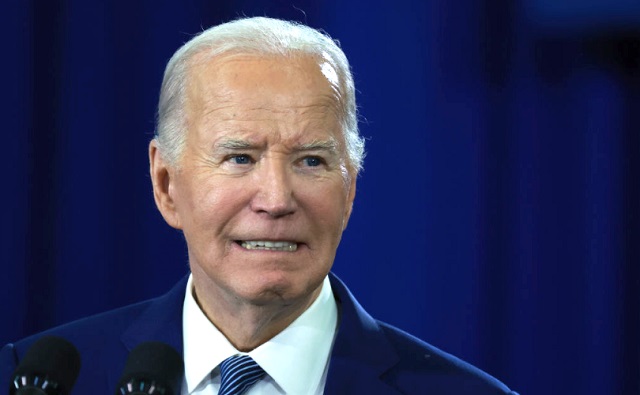
 International1 day ago
International1 day agoBiden admin expands Title IX to include ‘gender identity,’ sparking conservative backlash


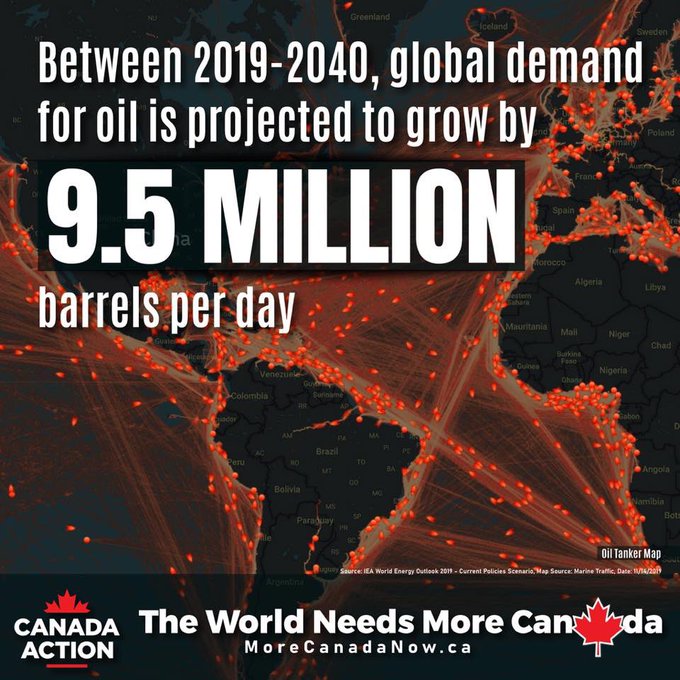


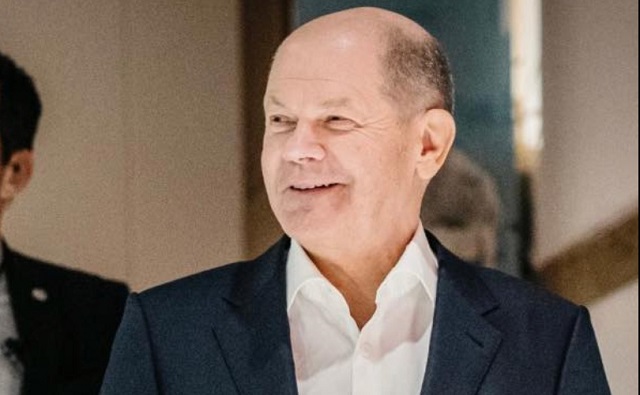

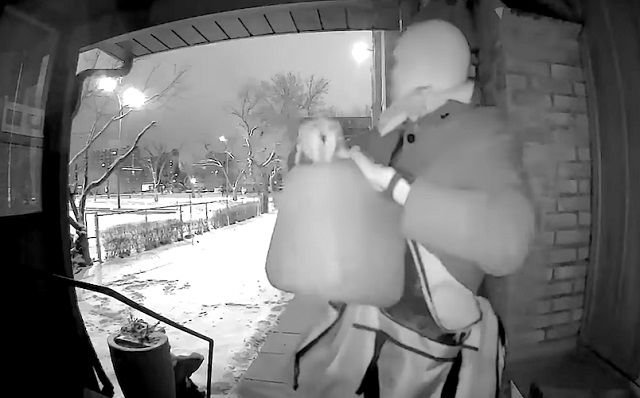
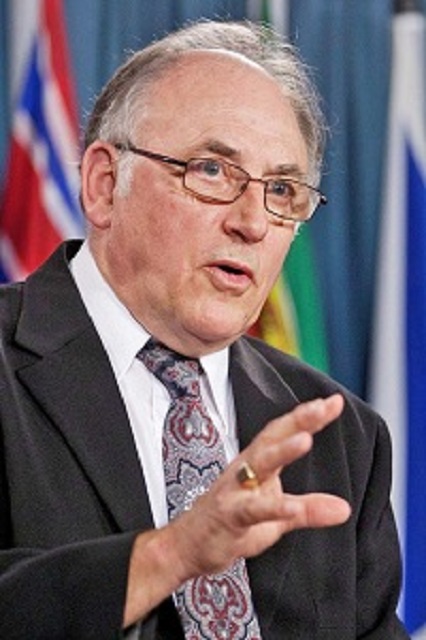
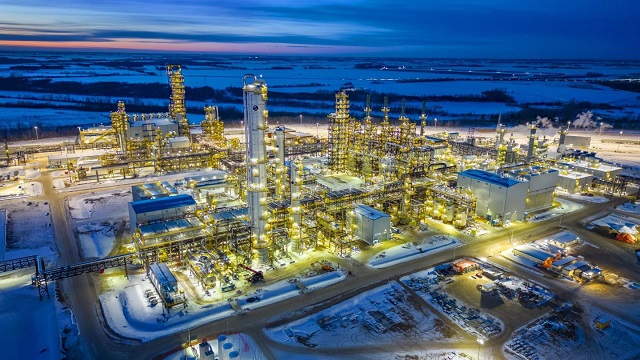


You must be logged in to post a comment Login